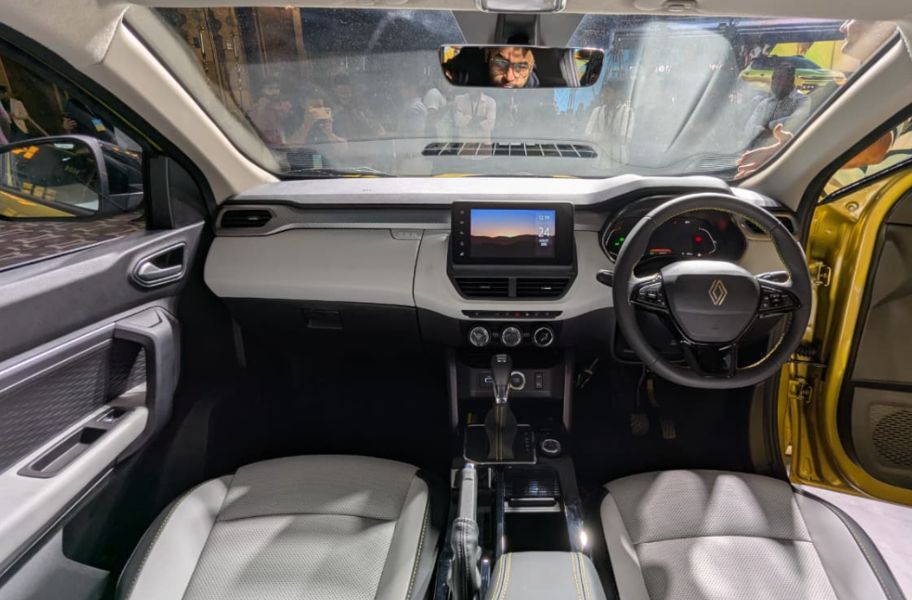Mahindra & Mahindra has planned a new range of born-electric SUVs, based on its new INGLO platform, which will start arriving from December 2024. The first model to launch under this strategy will be the Mahindra XUV.e8 (the electric iteration of the XUV700 SUV), followed by the XUV.e9, BE.05, BE.07, and BE.09. Recently, the upcoming Mahindra BE.05 electric SUV was caught on camera during an ad shoot. The production-ready version of the coupe SUV appears similar to its concept, which was unveiled on 15th August 2023.
The Mahindra BE.05 will measure nearly 4.4 meters in length and will also have an off-road derivative – the BE Rall.e. The spotted model features C-shaped LED headlamps and taillamps, along with sharp creases. It carries the signature twin peaks logo at the front, dual-tone alloy wheels, glossy black body cladding, a sloping roofline, and a sporty rear diffuser.

Inside, the new Mahindra electric SUV will have a dual digital screen setup – one for the instrument cluster and one for the infotainment system. There will be an airplane-inspired gear lever, a new two-spoke multifunction steering wheel with an illuminating BE logo, and a center console with an engine start/stop button, a drive mode selector, cup holders, and a front armrest.
Mahindra has already confirmed that its new born-electric SUVs will come with a 16-speaker sound system from Dolby Atmos, 3D surround sound and active noise cancellation, Adreno X with EV-specific menus and displays, HUD (head-up display) showing AR (augmented reality) on the windscreen for navigation, driving, media, and phone, OTA updates, onboard 5G connectivity, vehicle-to-X (V2X) capabilities, and a Level 2 ADAS suite.

Compared to the XUV.e8 and XUV.e9, the Mahindra BE.05 and BE.07 SUVs will have more powerful motors, sourced from Volkswagen. The 2WD models will come with a rear-mounted electric motor generating 210kW (286bhp) and 535Nm, while the 4WD versions will have a front axle-mounted motor producing 80kW (109bhp) and 135Nm. These electric SUVs will feature a battery pack with a capacity of up to 79kWh using LFP cells, with a charging time (from 0 to 80%) of 30 minutes.
Image Source






